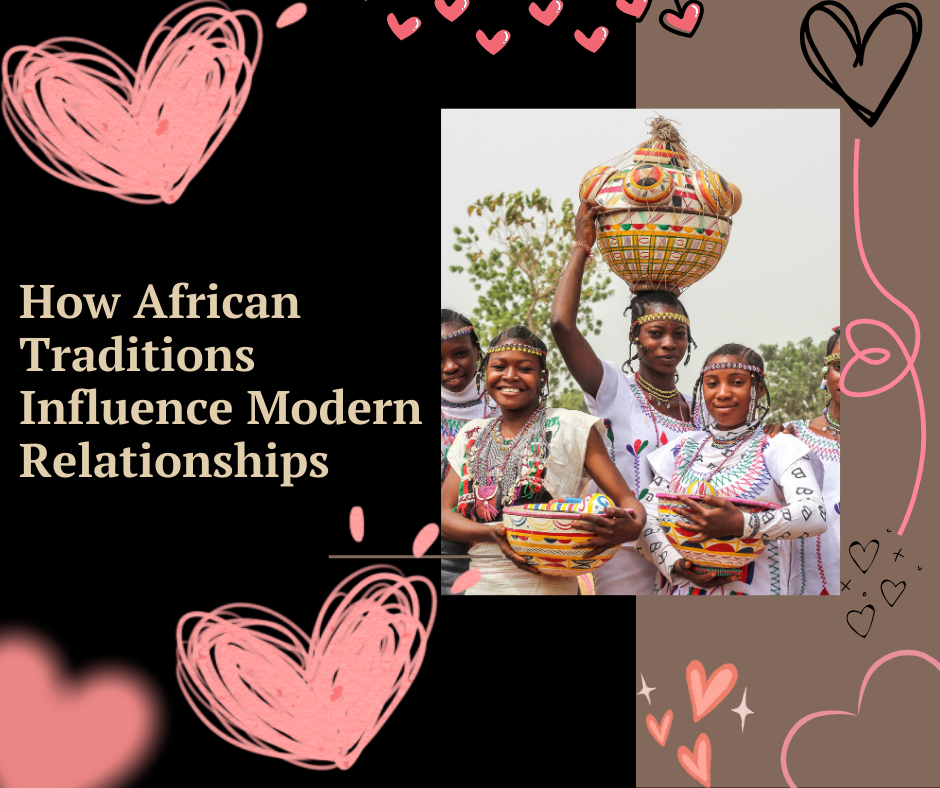1. The Importance of Family in Relationships
In many African cultures, family is not just limited to the nuclear unit of parents and children—it extends to a broader network of relatives, including aunts, uncles, cousins, and even close family friends. This sense of community fosters a strong support system that influences modern relationships. For instance, couples often seek the approval and blessings of their families before making major decisions, such as marriage or relocation. This tradition emphasizes the value of collective wisdom and ensures that relationships are built on a foundation of mutual respect and accountability.
2. Respect for Elders and Ancestral Wisdom
African traditions place a high value on respecting elders and seeking their guidance. In modern relationships, this translates to couples consulting older family members for advice on resolving conflicts or navigating challenges. Elders are seen as custodians of wisdom, and their insights often help strengthen the bond between partners. This practice also encourages younger generations to approach relationships with patience, humility, and a willingness to learn.
3. Celebration of Love Through Rituals and Ceremonies
African cultures are known for their vibrant and meaningful ceremonies, many of which are centered around love and relationships. For example, traditional weddings in countries like Nigeria, Ghana, and Kenya involve elaborate rituals that symbolize unity, commitment, and the merging of families. These ceremonies often include symbolic gestures, such as the exchange of gifts or the pouring of libations to honor ancestors. Even in modern relationships, couples are increasingly incorporating these traditions into their weddings or anniversaries as a way to honor their heritage and deepen their connection.
4. Communication Rooted in Storytelling
Storytelling is a cherished tradition in many African societies, serving as a way to pass down values, lessons, and history. In modern relationships, this tradition influences how couples communicate. Sharing stories—whether about personal experiences, family history, or cultural heritage—helps partners understand each other on a deeper level. It also fosters empathy and strengthens emotional intimacy, as couples learn to appreciate each other’s backgrounds and perspectives.
5. The Role of Ubuntu in Building Strong Relationships
The philosophy of Ubuntu which translates to "I am because we are," is a cornerstone of many African cultures. It emphasizes interconnectedness, compassion, and the idea that individuals thrive when they prioritize the well-being of others. In modern relationships, this principle encourages partners to approach their union with a sense of shared responsibility and mutual support. It reminds couples that their actions and decisions impact not only each other but also their families and communities.
6. Balancing Tradition and Modernity
While African traditions continue to influence modern relationships, many couples are finding ways to balance these practices with contemporary values. For example, some may choose to blend traditional wedding customs with modern elements, such as personalized vows or destination ceremonies. Others may adapt traditional gender roles to suit their partnership dynamics, ensuring that both partners feel empowered and respected. This balance allows couples to honor their cultural heritage while embracing the evolving nature of relationships in the 21st century.
Conclusion
African traditions offer a wealth of wisdom that continues to shape modern relationships in meaningful ways. From the emphasis on family and community to the celebration of love through rituals, these practices remind us of the importance of connection, respect, and shared values. By integrating these traditions into their lives, couples can build stronger, more resilient relationships that honor the past while embracing the future.
